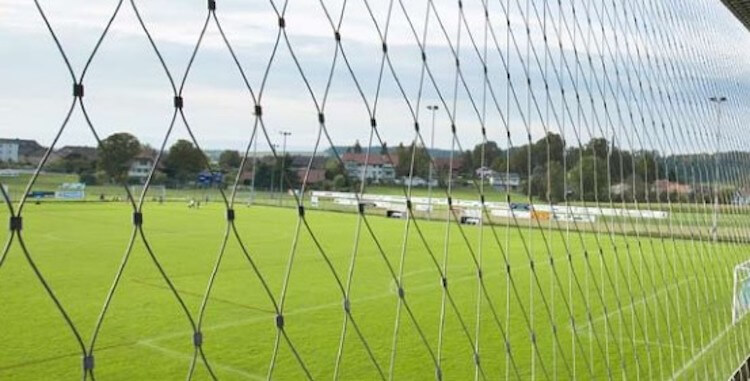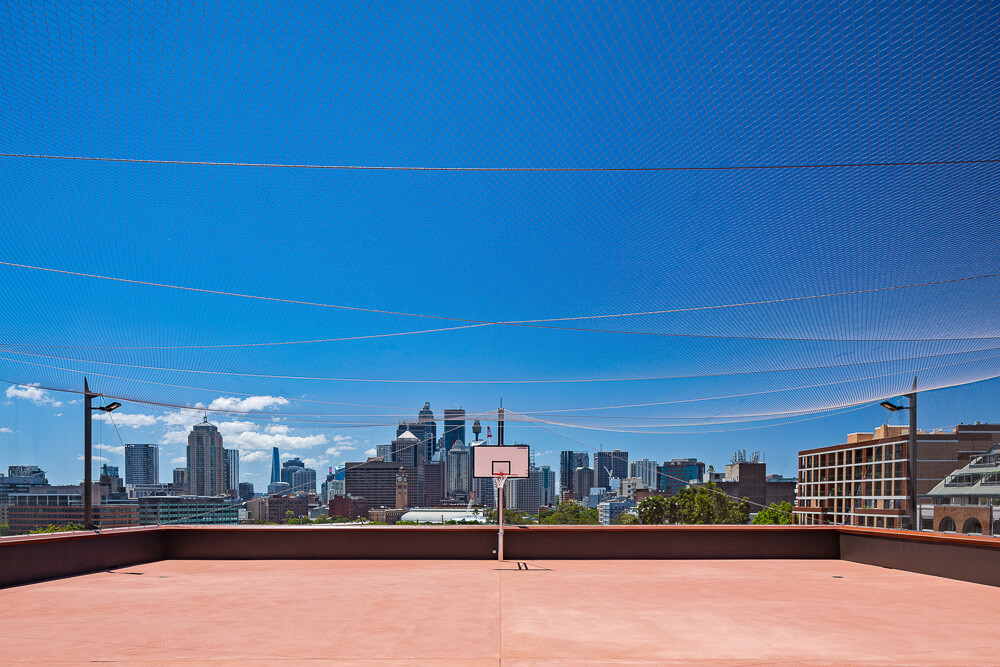Made from woven stainless steel wire, Jakob’s Webnet mesh is a highly suitable material for sports fencing, offering strength, durability and flexibility.
From ball catchers to indoor stadium crowd control, it has a number of applications in the sporting arena.
Here’s why you might choose it, and how it can be used.
9 reasons to choose Webnet mesh
- Tensioning capability – Webnet can be stretched and tensioned to suit project requirements for level of rigidity or flexibility. This makes it particularly effective for ball catchers.
- Impact and noise resistance – Webnet absorbs noise and can withstand the impact of ball slams, making it ideal for ball-stop fences, and for situations where you need to keep the noise to a minimum.
- Robustness – Webnet is made from marine-grade stainless steel. This makes it resistant to corrosion, weather and UV-degradation (unlike nylon netting for example).
- Low maintenance – Webnet requires very little in the way of ongoing maintenance, which helps save money in the long run.
- Transparency – Webnet is highly transparent (especially the sleeveless variety), making it great for visibility, light and airflow.
- Large span size – Webnet can accommodate very large span requirements with minimal supports, making it ideal for indoor basketball courts.
- High customisation – Webnet can be customised in terms of aperture-opening size and shape, wire-rope dimensions, colour and more.
- Compliance – Webnet complies with Australian Standards and can be used in projects that have high crowd-load requirements.
- No subframe requirement – this means Webnet can offer installation time and cost savings.
How Webnet mesh can be used for sports fencing

Webnet mesh is used in sports fencing applications all over the world.
Ball catchers
Webnet is ideal for ball catching nets or ball stop fences.
Project examples:
- Invisible football net, Switzerland – the mesh for this ball catching net in Lausanne was overstretched widthways at the point where most balls hit the net. This makes it rigid and resistant to slams at that point, while leaving the rest of the netting softer and more flexible by comparison. This solution amply demonstrates the malleability of Webnet, and the way it can be adapted to suit individual situations and requirements.
- Ball catching fence, Switzerland – this high school sportsground is situated in a busy area close to a main road, so the sports fencing needed to be effective at reducing noise and providing security. The Webnet fence meets these requirements by keeping the ball within the enclosure and by absorbing shocks and noise.
Elevated sports court barriers
Webnet can provide an ideal solution for sports areas that also require fall protection. An example is the new multistorey Inner Sydney High School in Surry Hills, where Tensile was engaged to build the mesh barriers for the rooftop basketball court. This presented some challenges as the span was 26 metres, and there were no existing supports! However, we were able to use our knowledge of tension forces to design a bespoke post-and-cable system to support the mesh.
Indoor stadium barriers
Another application of Webnet is that of invisible barriers within indoor sports courts, such as at the Police Citizens Youth Club facility in Dee Why. In this project, we installed court screens that were as transparent and light as possible, as well as some balustrades for fall protection. 160mm-aperture Webnet was used to create the sports fencing which acts as a highly robust barrier that is almost invisible.
Get in touch if you’d like to find out more about the use of Webnet in sports fencing.






































